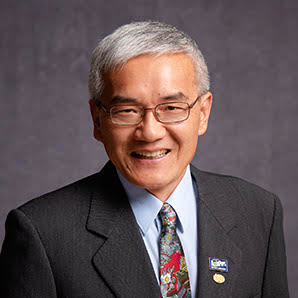By Dr. Cliff Han, Founder — Allerpops
The gentle rustle of newly minted green leaves and the soft fuzz of blooming flowers might evoke feelings of renewal and growth for some, but for others, they bring the familiar discomfort of watery, stinging eyes, congested airways, and cloudy days. According to the Centers for Disease Control and Prevention, 26% of adults and 19% of children in the United States have seasonal allergies.
The timing of pollen season in the US often varies due to regional temperature differences, weather patterns, and plants indigenous to that region. Pollen is already hitting the South and Eastern US earlier than in years past since, for southern states that generally encounter warmer weather, winter typically takes a late start. For the northern states, it is expected to begin in spring.
We expect seasonal allergies, as they come and go in a predictable cycle. However, this spring — much like the past few years — has brought unexpected changes to what we once considered routine phenomena.
Usually, experts from organizations such as the Atlanta Allergy & Asthma Pollen Counting Station measure the pollen count by analyzing “the number of pollen grains in a cubic meter of air over the previous 24 hours.” The pollen count in Atlanta, for example, was recently reported as extremely high at 3937 pollen grains in the air earlier this month on March 7th.
For certain individuals, pollen triggers an immune system response that perceives it as a foreign body, resulting in a chain of reactive measures within the body. These allergic reactions often manifest as uncomfortable symptoms such as respiratory difficulties, itching, and hives.
While some allergy sufferers resort to over-the-counter remedies for mild symptoms like sneezing or coughing, others seek more intensive measures such as consulting with their physicians for relief in the cases of swollen lymph nodes and difficulty breathing. Alternatively, some people use natural supplements like AllerPops, which feeds the good bacteria and corrects the root cause of allergies, resulting in relief lasting for months to years.
Impacts of Climate Change
As temperatures across the globe continue to rise, we have grown accustomed to hearing about the negative effects of air pollution and increased carbon dioxide levels on our respiratory health. But what’s often left out of the discussion are the implications of global warming on allergies, which can be just as significant. For example, Climate Central, a non-profit organization that specifically focuses on climate research and its impacts, mentions how “Ragweed pollen season has lengthened by 3-4 weeks since 1990 in the central and eastern United States.”
Despite the catastrophic impact of climate change in other areas, it’s important not to overlook the impact it’s having on our health, including our susceptibility to allergies. Warmer temperatures due to increased carbon dioxide in the atmosphere are having a significant impact on the timing and intensity of pollen season.
With temperatures rising, plants are blooming earlier and for longer periods of time, leading to more extended allergy seasons. Additionally, the higher levels of carbon dioxide in the atmosphere can lead to the production of more potent pollen.
Plants use carbon dioxide to grow and bloom, and thus, due to these higher levels of carbon dioxide, they are able to produce higher levels of pollen. This presents a concerning scenario, as the severity and frequency of extreme weather events are also likely to increase due to climate change, according to a report by researchers at Climate Central.
Heat waves, droughts, and flooding can all exacerbate allergy symptoms, leading to potentially severe health implications. In some studies, researchers have found a correlation between “high pollen, mold counts” that occur “around thunderstorms with increased asthma symptoms and hospital admissions.”
As pollen potency and type continue to change, the impact on allergy sufferers could be substantial and alarming. Seasonal allergies have become a relatively routine part of many lives but climate change is causing changes to these patterns, leading to unexpected allergic reactions and worsening symptoms for many.
Dr. Han, founder of AllerPops, was a biologist for 28 years and a former medical doctor. He participated in the Human Genome Project and authored more than 300 peer-reviewed publications. He is a scientist with the heart of an entrepreneur. He’s been featured in NY Weekly among other publications.
Feature photo by Karolina Grabowska









